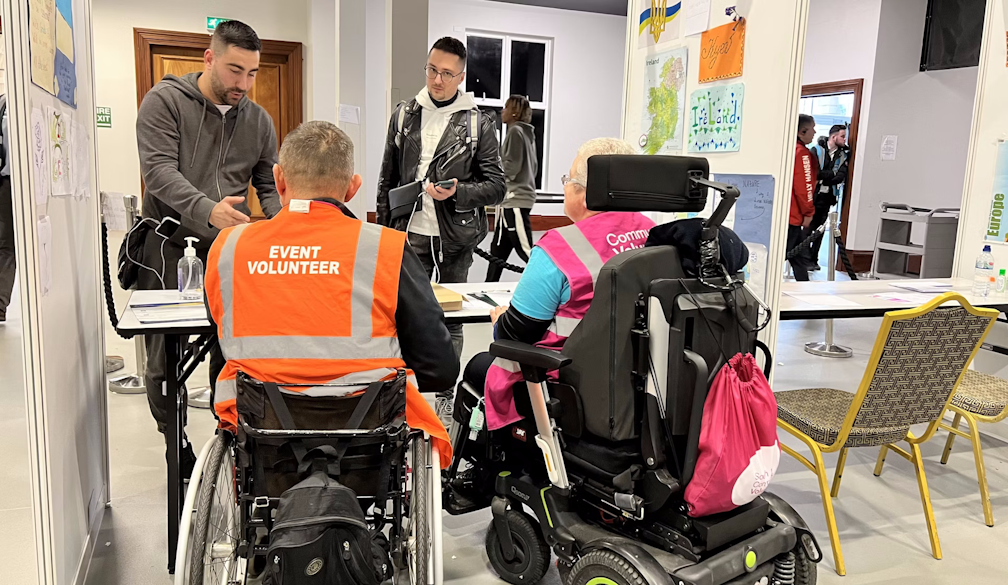Disability Care in Melbourne: What Families Need to Know in 2025

If you’re supporting a loved one with a disability in Melbourne, you’ll know how important it is to find the right care—and how overwhelming it can be to navigate the system. With the National Disability Insurance Scheme (NDIS) in full swing and a wide range of services available, 2025 brings both opportunities and challenges for families trying to secure the best support possible.
Whether you're new to the NDIS or just looking to stay updated, here’s what you need to know about disability care in Melbourne this year.
Disability Care in Melbourne: What Families Need to Know in 2025
1. The NDIS Is Still Evolving
The NDIS continues to grow and shift as it responds to feedback from participants, providers, and communities. In 2025, one of the biggest focuses is improving participant experience—making it easier to understand your plan, access the right services, and get support coordination when you need it.
Tip: If you haven’t reviewed your NDIS plan in a while, consider doing a plan reassessment. The right changes could mean better funding for therapies, community access, or even assistive tech.
2. More Providers, More Choice—But Do Your Homework
Melbourne is home to a huge number of NDIS-registered providers offering everything from personal care and domestic support to social activities and occupational therapy. The upside? More choice. The downside? Not all providers are created equal.
When looking for support, it’s important to choose an NDIS Registered Provider, as they meet government standards for quality and safety and are authorised to deliver NDIS-funded services.
Here’s what to look for:
- Experience with your loved one’s specific needs
- Clear communication and flexibility
- Positive reviews or word-of-mouth recommendations
- Transparency around pricing and availability
Don’t be afraid to shop around and ask questions. You deserve a provider who fits well with your family.
3. In-Home Care Is on the Rise
Post-COVID and with a stronger focus on independent living, in-home care is booming. More families in Melbourne are choosing to have support workers come to their homes rather than attend clinics or group sessions. This model allows more comfort, routine, and privacy.
Common in-home services include:
- Daily personal care (showering, dressing, meals)
- Household help (cleaning, laundry)
- Therapy support (like physio or speech therapy)
- Companionship and community access
4. Support Coordination Is Key (If You Can Get It)
Not every participant is funded for support coordination, but if it’s available in your plan, it’s worth its weight in gold. A good support coordinator helps connect you with services, explain how to use your funding, and advocate for changes when needed.
If you're overwhelmed by paperwork or not sure where to start with a new plan, ask your Local Area Coordinator (LAC) or planner about getting support coordination included.
5. Access to Culturally Safe Support Is Growing
Melbourne is one of the most multicultural cities in the world, and in 2025, there’s a big push to make disability services more inclusive. Whether your family speaks a language other than English or comes from a community with specific cultural needs, there are now more providers focused on delivering care that’s respectful and relevant.
You can search the NDIS provider finder for cultural filters—or simply ask directly when making enquiries.
6. Technology Is Playing a Bigger Role
Assistive tech is getting smarter, simpler, and more widely available under NDIS funding. From communication devices and smart home modifications to mobility aids, tech can make a big difference in daily independence.
Some innovations to watch:
- Voice-activated home systems
- GPS tracking for community access
- Telehealth and virtual therapy sessions
- Apps to help with routines and reminders
7. Mental Health Support Is Now Front and Centre
2025 has seen a stronger focus on psychosocial disability—a term used to describe disabilities that arise from mental health conditions. More mental health support services are now covered under the NDIS, and providers are better trained to respond with empathy and understanding.
This is great news for families dealing with dual diagnoses or those struggling to find the right mental health pathways alongside physical disability care.
8. Stay Connected and Ask for Help
Caring for someone with a disability can be rewarding but also tiring. Melbourne has some great community networks for families, carers, and participants. From local support groups and social events to online forums and respite services—connection makes all the difference.
A few places to start:
- Carer Gateway
- VALID Victoria
- NDIS community sessions
- Your local council’s disability support services
Final Thoughts
Disability care in Melbourne in 2025 is full of opportunities—if you know where to look. With the right plan, the right people, and a bit of persistence, families can access support that truly empowers their loved ones.
Whether you’re just getting started or you’ve been navigating the system for years, remember: you’re not alone, and help is out there.










